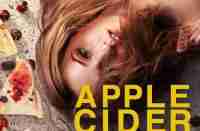In under a decade, Roscommon has gone from being billed as Ireland’s ‘most homophobic county’ to a county proud of its Pride…
Let’s talk about… Roscommon and Pride
When Ireland became the first country in the world to approve same-sex marriage by popular vote in 2015, I was still a few years off the voting age. But like everyone else in the country, the conversation around the referendum was a constant one I’d been having – with friends, classmates, family.
I can so clearly remember how engaged the country was; how much discourse preceded the vote, how unavoidable and non-stop and emotive and at times infuriating that discourse was – and probably, was always going to be. I remember fighting over it, and watching other people fight over it. And I remember hearing the result. I remember the reaction. I remember welcoming it with friends. I remember turning on the TV to watch blankets of people swarming euphorically at Dublin Castle; a sea of colour, of ecstatic celebration, and of heartfelt tears. A show of love and of community, and of overdue progress. A huge win, in so many ways, and the bare minimum, in another. I remember feeling proud of Ireland. And relieved.
Because with that result came another feeling; the disappointment, sadness, and to be honest, shame that I felt upon learning the only area that had stood in the way of this historic vote being unanimous, was our own. Roscommon earned an infamous reputation as the ‘no’ county, as ‘Ireland’s most homophobic county’, when Roscommon-South Leitrim became the only constituency to return a ‘no’ vote. It was still a reference being made jokingly when I moved away for college years later and told people where I was from.
Roscommon-South Leitrim voted 51.42% to 48.58% against the referendum, though it should perhaps be noted that the slew of criticism aimed solely at the area largely sidestepped considerations like the fact that more people voted ‘yes’ here (17,615) than in both Donegal South-West (15,907) and Donegal North-East (16,040), and that fewer voted ‘no’ here than in thirteen other constituencies – in fact, Donegal South-West went ‘yes’ by just 33 votes. But nevertheless, none of this is to negate the underlying truth that Roscommon’s emergence as the infamous ‘no’ county (Leitrim was apparently exonerated by Sligo-North Leitrim ‘yes’) did of course say something about the community’s values.
The most likely explanations given for the constituency’s ‘no’ vote were the same ones used to explain why other places (in Donegal, for example) only returned ‘yes’ with very slim margins. There is a well-founded association between rural, traditional, and predominantly Catholic areas, and a lack of support for progressive social changes like same-sex marriage. And this phenomenon is often exacerbated by having an older population, who (generally) tend to be more conservative and more resistant to change.
Undoubtedly, these factors played a central part in influencing the county’s voting. But so much pre-referendum discourse seemed to suggest the full explanation wasn’t quite as simple as that; as simple as Roscommon being too old and rural, too backwards, too full to the brim with bigots – especially since there were several wonderful, progressive voices advocating for a ‘yes’ vote in the county.
Across so many discussions, much of the resistance to voting ‘yes’ appeared to lie less in emphatic bigotry, than in the perception of the queer community’s distinct ‘otherness’; an ‘otherness’ that could perhaps be accepted… so long as it was kept ‘other’. Roscommon became dubbed as ‘Ireland’s most homophobic county’ when the result came out, and while certainly there were hateful people among the ‘no’ voters, it often felt as though lots of ‘no’ voters were operating less on hate but on a technicality; they’d “no problems” with queer folk, but didn’t understand why there was a need to ‘change’ marriage when civil partnerships already existed.
A voter like this – a voter operating not from a place of hate or intentional ostracisation, but out of a genuine lack of information or understanding about how important something like equal marriage is when it comes to building acceptance and destigmatising queerness – is a very different thing altogether from a voter who votes ‘no’ because of down and out bigotry.
To regard Roscommon circa 2015 as a county deeply and irreparably entrenched in homophobia would be to point towards the very real stigma, and even hate, that has existed within the area. But it would also be to ignore that 48% of ‘yes’ voters, and in my (hopeful) opinion, to misrepresent ‘no’ voters slightly. Or at least to underestimate them. We were always an area capable of progress, of evolution from the traditional, conservative frameworks that long dominated societal values. We were always an area capable of moving past intolerance, past tolerance, past acceptance, and into celebration of our diverse identities; into becoming a community that honours, respects, and supports all the different people who make it up.
And this could not be better evidenced than by the fact that this weekend, just under a decade after returning that infamous ‘no’ vote, Roscommon is set to hold its very first Pride celebrations.
It’s lost on no one that in recent times, we have witnessed a bit of a pendulum-swing in terms of how the LGBTQ+ community is regarded and treated. Globally, we have seen how volatile conversations about queerness (particularly transness) have turned. And here at home in Ireland, we have seen how a myriad of factors – from the rising influence of the far-right to online misinformation to a general increase in violence – have resulted in attacks against members of the community, in library workers being harassed, in hateful demonstrations, in Pride events having to be called off due to threats.
So it is so comforting to think that this time around, nine years on and despite the wider context of renewed hate lately, Roscommon – once known as the infamous ‘no’ country, the supposed ‘most homophobic county in Ireland’ – has evolved to become a place where queerness can be openly celebrated.
The amount of work and passion that the organisers of Roscommon Pride have put into the programme of events taking place this weekend is mammoth. As is what it means for the community in Roscommon. And I encourage everyone who can, whether you’re part of the queer community or not, to come along and show your support, while also getting to join in on the fun – Saturday’s Pride March in particular sounds unmissable.
Information on the different events taking place can be found on page 15 of this newspaper, with full details at roscommonpride.ie. This truly is a milestone event for Roscommon, and one whose success will hopefully continue for many years.
Hopefully time will prove that events like this weekend’s, and the way the community is coming together to support this year’s Pride, is much more indicative of the spirit of Roscommon – of the kindness and community that exists within it – than the vote retuned in 2015 ever was. Here’s to progress, and to a very happy Pride!






